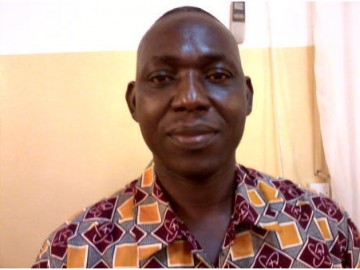Plans are underway by the West African Trade Union Organization (OTUWA) to launch a regional campaign against political health tourism in subregions.
The catchphrase, “Our leaders must use our hospitals,” was one of the fallouts of a research dissemination workshop Otowa hosted with support from the Organisation Center.
The conference, which brought together more than 30 union leaders and activists from the West African region, pointed out how health tourism disproportionately benefits the elite, whilst health workers diverting resources that can strengthen the local health system, health workers are slowing morale and leading to braindrain due to poor investment in healthcare in the country.
Therefore, trade unions have decided to undertake a campaign, pointing out their important role in demanding public investment in health, transparency and accountability.
In his opening remarks, Otowa's executive director John Oda drew urgent attention to the deepening crisis brought about by the unidentified rise of medical tourism in West Africa.
He said: “As practiced now, medical tourism is not merely a symptom of the failure of the healthcare system, it is a direct contributor to structural poverty and inequality that undermine our society. When civil servants and elites routinely bypass national health facilities that support treatment abroad, they abandon their responsibility to invest in the general public.”
He added that the two-tier health access system is unfair and dangerous, and will entrench inequality by ensuring that quality care remains a privilege for a small number of people while the majority fights underfunded and excessive local hospitals.
ODAH claimed that current practices create apartheid in health care. This contradicts the principles of social justice and equal opportunity supported by trade unions.
Furthermore, whether it is financial, administrative or human capital, the unidentified transformation of public resources towards private medical travel erodes private medical travel into democratic governance. It shows a lack of accountability and widens the gap between elected leaders and the people they serve.
He urged sub-regional labor trade movements to challenge a culture that normalizes health tourism among political and economic elites.
OTUWA called for immediate reforms that lead to a transparent health budget and public investment in domestic health infrastructure, government-funded regulations and reporting on medical travel abroad, and comprehensive health policies that prioritize access and dignity for all citizens.
Oda added that health care is not a product reserved only for the wealthy, but that “if we fight poverty, reduce inequality and maintain West Africa's democracy, we need to end the double standards of health care and demand systems that serve many people rather than the few.”
Deddeh Tulay, Country Program Director for West Africa's Centres of Solidarity, was represented by senior program officers at Gabin Ralph, pledged the Centre's continued support for the union campaign on health and democracy in the region.


